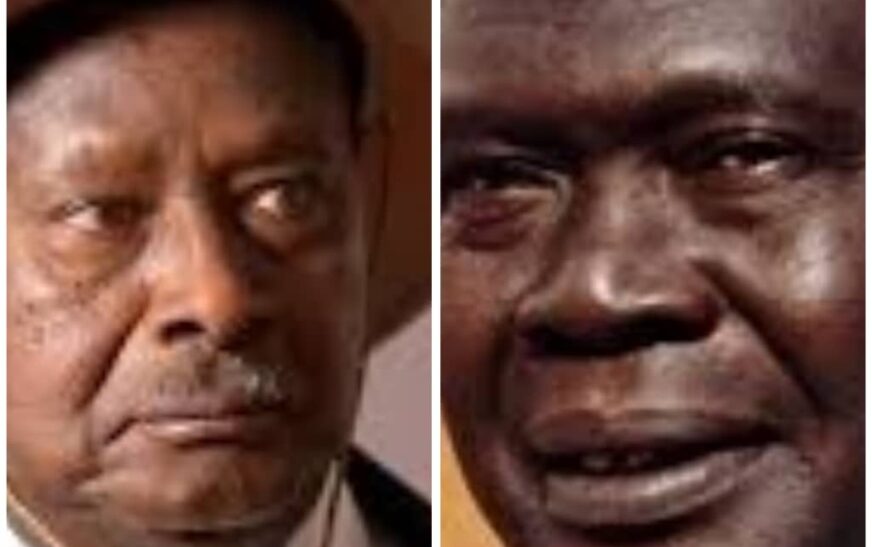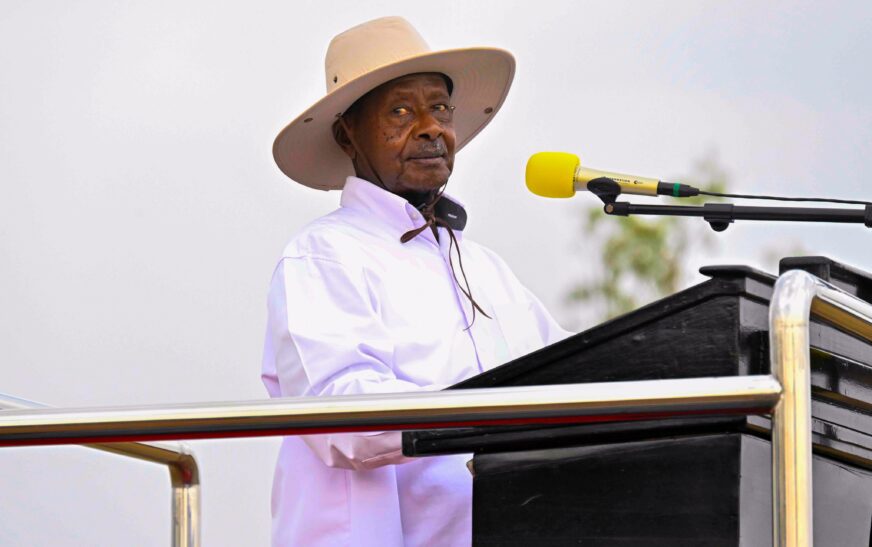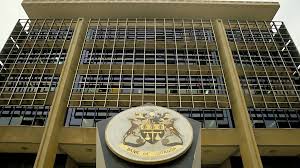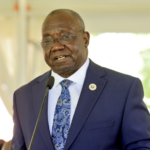On July 27, 2024, Uganda marked exactly 39 years since Apollo Milton Obote was overthrown for the second time as the country’s president.
Born in 1925 in Akokoro village, present-day Apac district, Obote was the son of the late Stanley Opeto, a village chief, and Puliska Opeto. He was the third of 11 children. A descendant of the Oyima clan, which is believed to have originated from Bunyoro, Obote attended Ibuje Primary School in Lira before moving to Jinja to study at Busoga College, Mwiri. He later joined Makerere College (now Makerere University) to study economics.
However, Obote did not complete his education at Makerere University, and conflicting reports exist about the reasons for his departure. He claimed he left because he was forced to study a subject he was uncomfortable with, as he had intended to study law instead of economics. Other reports suggest that he was expelled for allegedly leading a student strike. He later sought scholarships to universities in the UK and the US but was blocked by the British authorities. Despite this, he demonstrated leadership skills in Lango, northern Uganda, and beyond.
According to the State House website, Obote worked as a casual laborer at Mowlem, a construction firm, before being transferred to Kenya. While there, he exhibited strong leadership skills and was promoted to an office position, where he advocated for workers’ rights. He joined Kenya’s independence movement and supported the Kenya African Union.
When he returned to Uganda in 1955, the country was actively pushing for independence. Despite the presence of established political parties such as the Uganda National Congress (UNC), led by Ignatius Kangave Musaazi, and the Democratic Party (DP), led by Benedicto Kiwanuka, Obote joined UNC. He quickly rose through the ranks, becoming Deputy Chairman and later the party’s President. In 1958, he was nominated by Lango to the Legislative Council (LegCo).
In 1960, Obote formed the Uganda People’s Congress (UPC). After losing the 1962 elections to DP, he formed an alliance with Kabaka Yekka (KY), a party advocating for Buganda’s interests. This alliance secured victory in the independence elections, allowing Obote to become Uganda’s executive Prime Minister, while Sir Edward Muteesa served as the ceremonial President.
However, Obote’s relationship with KY deteriorated in 1966, leading him to order the army, under Colonel Idi Amin, to attack Lubiri Mengo. In 1967, he introduced a new constitution, abolishing the independence constitution and declaring Uganda a republic, which made him President. By 1969, he had fallen out with members of his party, and that same year, he survived an assassination attempt.
During the 1970s, Obote lost the support of Britain and Israel, who had previously backed him. A coup plot was devised, and his longtime ally, Idi Amin, was chosen to replace him. While attending the Commonwealth Conference in Singapore in January 1971, Obote was overthrown by Amin.
In 1972, Obote was exiled to Tanzania, where he launched an unsuccessful attack against Amin’s government. However, in 1978, with support from the Tanzanian government, Fronasa, and other groups, an armed struggle led to Amin’s overthrow on April 11, 1979.
Due to his previous dictatorial rule, Obote was initially blocked from reclaiming the presidency. Instead, Yusuf Lule was appointed as President, followed by Godfrey Binaisa and Paulo Muwanga. However, in the 1980 elections, which were reportedly rigged by his allies, including Muwanga and the army under David Oyite Ojok, Obote regained power.
In 1981, the National Resistance Army (NRA), led by Yoweri Museveni, launched a guerrilla war in Luwero against Obote’s government. On July 27, 1985, Obote was overthrown by his own army commanders, Brigadier Bazilio Olara-Okello and General Tito Okello. Their rule was short-lived as the NRA seized power in 1986, making Museveni President.
Obote fled to Zambia, where he remained in exile until his death in 2005.
Obote’s Persistent Mistakes
In an interview for this story, Ambassador Henry Mayega, a former vice president of the Uganda People’s Congress (UPC) who later defected to the ruling party, stated that Obote’s downfall was a conspiracy orchestrated by the British and Israel. He argued that Obote’s shift towards leftist policies was a critical mistake, leading foreign powers to groom Idi Amin, who ultimately overthrew him.
“I was a vice president of UPC and visited Obote several times in Lusaka, where he was exiled. He was a good man, a nationalist who prioritized his country. He believed in grooming leaders who would transform their societies,” Mayega said.
He further noted that the first coup in 1971 was largely driven by foreign interests. “Foreigners will always use local actors. The British, and especially the Americans, were not happy with Obote’s leftist policies. They infiltrated both the party and the army, orchestrating his downfall.”
Mayega acknowledged that Obote made numerous mistakes, one of which was forming an exclusively UPC-led cabinet. “When Museveni came to power, he learned from that mistake and formed a broad-based government, appointing members from opposition parties as ministers. That has remained the norm since 1986.”
When Obote returned to power in 1980, he sought to mend relations with Western powers. Unlike his earlier tenure, where he was seen as an anti-imperialist, his new government aimed to appease the West. This shift was reflected in the UPC’s 1980 election manifesto, which promised to return properties that had been expropriated from Asians by Idi Amin in 1972.
However, Obote’s second administration was weakened by internal conflicts within the party and the military. The 1985 coup resulted partly from his failure to resolve these divisions. The military leadership, dominated by Acholi officers, was deeply divided. “All brigade commanders, three out of four, were Acholi. The army commander was also an Acholi, yet they fought over the position of Chief of Staff. Despite being the majority, they suffered the highest casualties on the battlefield and lacked cohesion,” Mayega explained.
According to Morris Ogenga Latigo, Obote’s flawed approach to military promotions contributed to his downfall. “He was conflicted about who should be promoted and likely sidelined educated officers in favor of Amin. Amin, realizing the allure of power, took advantage of this, as seen in the 1970 murder of Brigadier General Pierino Okoya.”
Latigo, who worked on the UNDP Uganda Human Development Reports, admitted that his views on UPC changed after studying budget reports from 1960 to 1997. “We were hostile towards UPC. However, when I examined budget speeches and background reports, I was surprised by what Obote’s government achieved for Uganda,” he said.
Latigo highlighted Obote’s commitment to national development. “No region was disenfranchised in implementing policies. Agriculture received between 20% and 26% of the annual budget, and development was widespread. District hospitals were built nationwide, including in opposition strongholds like Anaka.”
Despite these achievements, Obote failed to prevent infiltrators from destabilizing his government. Amin exploited this weakness, leading to Obote’s first overthrow.
Obote’s second administration faced additional challenges. “He returned to power after a brutal war that had destroyed state institutions and infrastructure. Unlike Museveni, who had time to rehabilitate the country, Obote had to rebuild from scratch,” Latigo noted.
When Uganda held the 1980 elections, the country was too fragile for multiparty democracy. Latigo pointed out that Museveni openly stated that if UPC won, he would go to the bush. The country’s instability ultimately paved the way for the National Resistance Army’s insurgency, culminating in Museveni’s takeover in 1986.
Tanzania and Libya at Play
Peter Walubiri, senior counsel and political analyst, said, “When a thief breaks into your home, you can take some precautions; it may be a dog or two, but depending on the circumstances of the theft, you may not be squarely to blame, and that was the situation that happened to the late Obote.”
He noted that Museveni went to Muammar Gaddafi, the former president of Libya, and Julius Nyerere, the former president of Tanzania. Gaddafi had a lot to settle because he lost money in the 1979 war, which saw the overthrow of Amin. On the other hand, Tanzania was still demanding payment for the support of overthrowing Amin in 1979 and UPC said they had paid more than enough, but they kept on asking for more and more, so Museveni exploited that.
“Indeed, the big force that overthrew and took over Kampala were mainly Tanzanian forces, but nobody talks about that, but they were physically here in 1986. Museveni was a good friend. It was a complicated situation. The dynamics of 1971 and 1986 are quite different,” he said.
Walubiri noted that Obote lost the war because he was not willing to shed blood. When Bazirio and them crossed to Karuma, the Korean forces, which were in Uganda, offered to go and intercept them, but Obote declined. You can probably accuse him of being a weak leader.
Bazirio had grabbed an elite force that was being trained to fight the rebels. They had been selectively recruited for this purpose, but Obote said no, we are going to kill them and shed blood for nothing. He addressed the army at the conference centre, saying what you are going to do is stupid.
Museveni’s successful stay in power
Museveni’s successful stay in power is alluded to by his ruthless, cunning, and preoccupation with staying in power.
“For him anything that stands in his way, he crashes it, whether the economy collapses or an opposition leader standing in his way; he persuades him to join the ruling class. If it means buying off politicians or giving jobs to one village, he doesn’t care. He has personalised the army. You can move five troops even if you are an army commander without his consent; even if you are a brigade commander, you can’t move five soldiers or 10 guns from one place to another,” Walubiri said.
“He has surrendered the economy to the West, banks, the telecom industry, mining, and so forth. He privatised government institutions. The coffee industry is back to the foreigners; we have started dismantling the tea industry and soon will go to foreigners,” he noted.
Latigo said Museveni’s stay in power is partly because of the advantage of his people. They are very inward and respect command. You won’t find them deviating from the line that has been set.
Confession
Daily Star had a confession from the former NRA officers about how they had been sweet-talking Acholi officers in the army. They employed the malice and sabotage tactic of spreading rumors against ministers.
This publication learned that they would accuse the minister of being working with rebels. His colleagues would begin to isolate him, and before long, he also realised that he was losing it. Slowly by slowly, ministers started listening to the rebels’ propaganda that after the next election, they were going to be dropped, and hence Obote began to lose some of the ministers.
He noted ministers became sympathetic so that when they got intelligence about rebel operations, they would not report it. The rebels believed that distinguishing a rumor from the truth in a war situation was a big problem.
Contact us: dailystaruganda@gamil.com





















